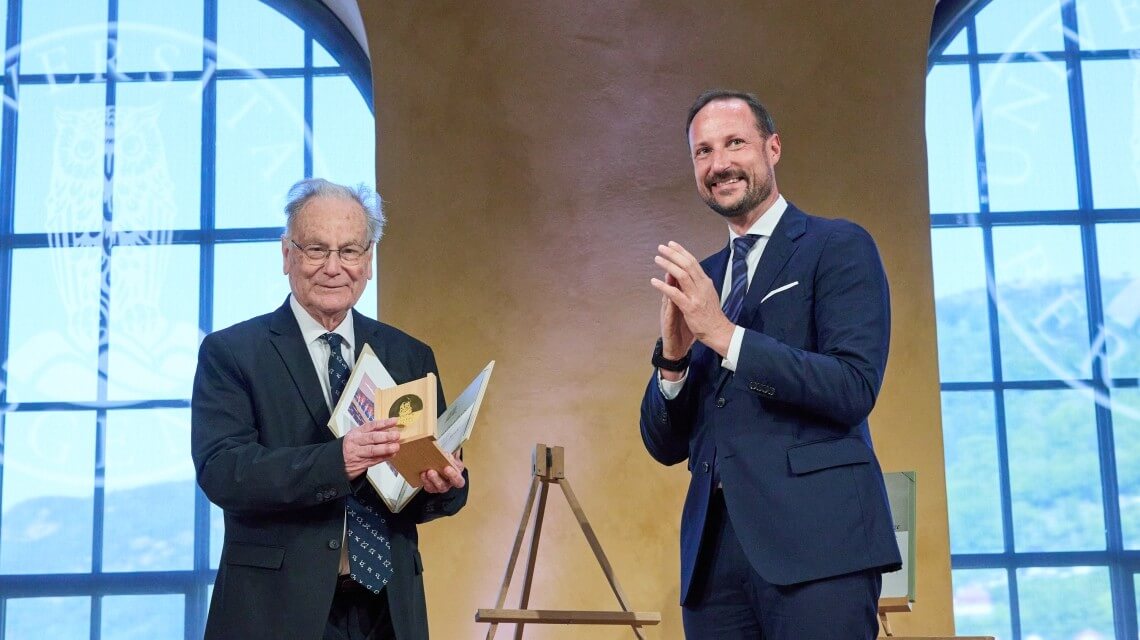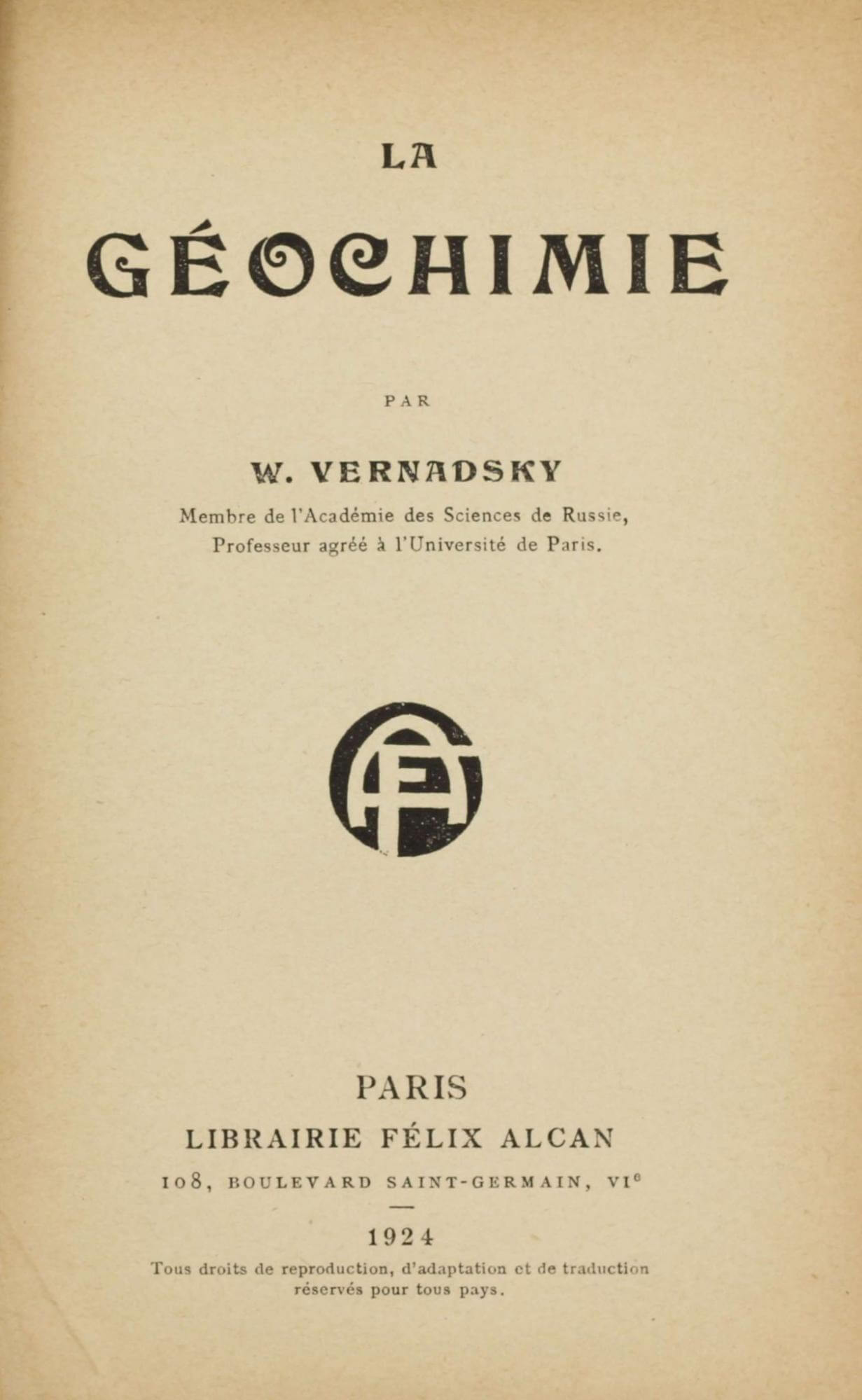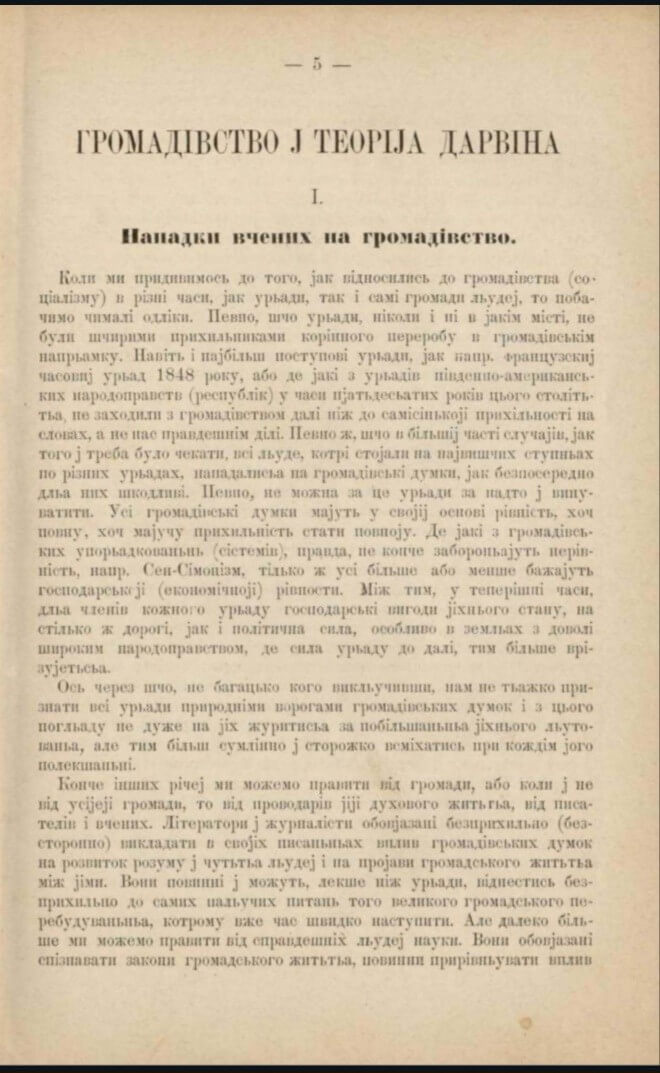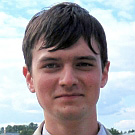The scientific legacy of Serhiy Podolynsky, a Ukrainian sociologist from the second half of the 19th century, is making a comeback in academia today. Unfortunately, not yet in Ukraine.
In 2023, Catalan social researcher Joan Martinez-Alier, co-founder of ecological economics and political ecology, received the Holberg Prize, one of the most prestigious social sciences and humanities awards, often compared to a Nobel Prize. In 2018, American economist William Nordhaus received the Nobel Prize in Economics for integrating climate change into long-term macroeconomic analysis.
Martinez-Alier and Nordhaus represent two poles of contemporary economic thought, with the former advocating for an alternative to mainstream economics and the latter representing its mainstream segment. These accolades clearly attest to the recognition of the “ecological turn” in contemporary social theory. Nature is not a thing in itself but is inherently social. Oddly enough, this idea is paradoxical for social scientists.
Figure 1. Joan Martinez-Alier (left) receiving the Holberg Prize from H.R.H. Crown Prince Haakon of Norway, 2023
Source: Holbergprizen
Classical sociology, starting from Émile Durkheim (1858-1917), introduced the consideration of social reality as a sui generis entity, which cannot be reduced to any other forms of reality: psychological states or environmental conditions. The social is to be explained through the social – a mantra known to every sociology student. The formation of society is a process of human emancipation from nature through culture, economic activity, and social institutions. Social reality was seen as fundamentally distinct from nature, leading to the conclusion that the properties of nature cannot contribute to the study of society, which needs to be explained in a closed cycle of the social.
The “closed cycle” concept was relevant to classical economics. However, the Barcelona School of Ecological Economics, founded by Martinez-Alier, operates on a contrary notion, where economics is not a closed cycle but is entropic because natural resources used to create goods are either non-renewable or regenerate much slower than they are consumed. Nature is not something external to economics; it is an integral component of socio-economic processes, influencing not only production and consumption but also distribution, conflicts, inequalities, power dynamics, etc. This exacerbates the problem of the “price” of development, which lies beyond the monetary optics of analysis.
However, the Barcelona School might not have emerged if not for the ideas of a somewhat forgotten Ukrainian sociologist and economist, Serhiy Podolynsky (1850-1891). He was the son of a princess and a royal chamberlain who became an activist of the Ukrainian movement. His grandfather was a graduate of the Kyiv-Mohyla Academy, and his father was an active state counselor (the civilian equivalent of a major general) and a large landowner. Podolynsky earned a medical degree at Kyiv University. He founded a hospital for peasants on his estate without government permission and later emigrated to Vienna after the Ems Ukase. Alongside Mykhailo Drahomanov, he co-founded the “Hromada” journal, which was printed in Ukrainian. He also published articles in other languages. His French publications helped preserve his ideas when they were entirely forgotten in Ukraine. In the early stages of the formation of Ukrainian sociology in the early 20th century, Podolynsky was considered one of the classics of this science in Ukraine. However, his legacy was later effectively obliterated from official mentions, with a negative review by Engels serving as sufficient justification.
One day, Martinez-Alier stumbled upon a French-language edition of Volodymyr Vernadsky’s “Geochemistry” (1924), in which Vernadsky asserted: “Podolynsky understood the energetics of life and sought to apply his conclusions to economic research.” Published a hundred years ago, this book became the starting point for Podolynsky’s return to contemporary social theory.
Figure 2. Title page of the French edition of “Geochemistry” (1924) by Volodymyr Vernadsky
Source: AbeBooks
Both of Martinez-Alier’s books mentioned in the committee’s motivation for the Holberg Prize as key works – “Ecological Economics: Energy, Environment, and Society” (1987, co-authored with Klaus Schlupmann) and “Environmentalism of the Poor: A Study of Ecological Conflicts and Valuation” (2002) – contain references to Podolynsky. In the latest book edited by Martinez-Alier, “Land, Water, Air, and Freedom: The Making of Global Movements for Environmental Justice” (2023), paying homage to Podolynsky as a precursor to the ecological turn, he writes:
“This young author started his article of 1880 by discussing how sun energy reaches the earth and the thermodynamics of this flow of energy. He then showed with statistics that natural forest and pasture produced calories by photosynthesis without human labor… However, in agriculture, by adding hours of human and animal work, the production of one hectare of wheat would be larger than that of one hectare of forest or pasture land would be without such inputs or work. Nature was producing forests and pastures, and with human ingenuity and work, it could produce larger crops (all measured in calories, both the inputs of human and animal work and the output)” (p. 687).
Podolynsky was the first to propose measuring all types of resources not in monetary terms but in units of energy measurement, in kilocalories. This was his original solution to one of the key theoretical problems of 19th-century political economy – the problem of value.
Figure 3. Page of the article “Le Socialisme et la Théorie de Darwin (Socialism and the Theory of Darwin)” by Serhiy Podolynsky in the Geneva journal “Hromada,” issue 1, 1880
How, for instance, can the work of a janitor be measured versus that of a professor? During Podolynsky’s time, two main approaches emerged to this problem: the labor theory, which argued that labor itself is the key measure of value, and the ordinalist approach, which argued that there is no objective measure of value; instead, the value of goods and services is subjectively ranked by consumers according to their preferences. Podolynsky’s approach is an alternative to both of these concepts. The “energy” theory of value states that there is already a way in nature to measure value across all types of resources, goods, services, and labor—namely, through the assessment of energy expenditures, gains, and losses.
Podolynsky sent his thoughts to Marx, who, however, did not understand them and passed the letter on to Engels, who criticized Podolynsky for confusing economics with physics (vivat the sui generis principle). According to Martinez-Alier, “Podolynsky’s agricultural energetics was a missed chance for ecological Marxism” (p. 688). Only at the end of the 20th century did social and economic theory return to the idea of integrating nature into socio-economic processes, partly reinventing the wheel and partly re-reading Podolynsky himself. The latter was a key stimulus for the emergence of the Barcelona School. However, even mainstream economists (as evidenced by the example of Nordhaus) began to show increasing interest in the problem of the interaction between nature and society.
Podolynsky’s case is unique. In the history of sociology, there have been examples of so-called “theoretical renaissances,” where semi-forgotten theorists were “rediscovered” (Max Weber, Georg Simmel, Robert Michels). Yet, this usually happened in their country of origin. Despite the publication of two volumes of correspondence and works by Podolynsky in 1990 (in Canada) and 2002 (in Kyiv), as well as a thorough sorting out of his bibliography by Roman Serbyn, there has been no significant progress in the study of Podolynsky’s legacy in the Ukrainian academic domain. Sociology and economics students in Ukraine are unaware of this name, and his fundamental work is not integrated into teaching or research. He is a classic at the opposite end of Europe, but not here.
Rarely in the history of Ukrainian social theory had the concepts of a Ukrainian scholar given rise to an influential academic school far beyond the borders of Ukraine. This case deserves discussion, but so does the legacy of Ukrainian social theory in general, which was not limited to accepting foreign concepts. However, what do we know about this legacy? Does it speak to contemporary researchers in light of new challenges? Before answering this question, we need to understand the content of the legacy itself. This will be the focus of the conference “Potential Classic: The Suppressed, Forgotten, and Rediscovered in the History of Ukrainian Sociology” (June 5-6, 2024). In light of a strong demand for cultural decolonization, humanities and arts seem to have an advantage. We can fill the shelves with Domontovych instead of Dostoevsky and Antonenko-Davydovych instead of Chekhov. But what about our sociological shelves? It seems that we have not yet approached this question carefully. Let this conference be the first step.
Attention
The author doesn`t work for, consult to, own shares in or receive funding from any company or organization that would benefit from this article, and have no relevant affiliations






